Foundation for the Promotion of Health and Biomedical Research of Valencia Region (FISABIO)
If you are the contact person for this centre and you wish to make any changes, please contact us.
Professor of Genetics at the University of Valencia and researcher of the Genomics and Health Area at the Foundation for the Promotion of Health and Biomedical Research of the Valencian Community (Fisabio)
Professor of Genetics at the University of Valencia and researcher at the mixed unit Infection and Public Health FISABIO/Universitat de Valencia
Senior Researcher at FISABIO-Dr. Peset University Hospital
Epidemiologist, researcher in the Health Services and Pharmacoepidemiology Research Area of the Foundation for the Promotion of Health and Biomedical Research of the Valencian Community (FISABIO) and Director of Gaceta Sanitaria, the scientific journal of the Spanish Society of Public Health and Health Administration (SESPAS)
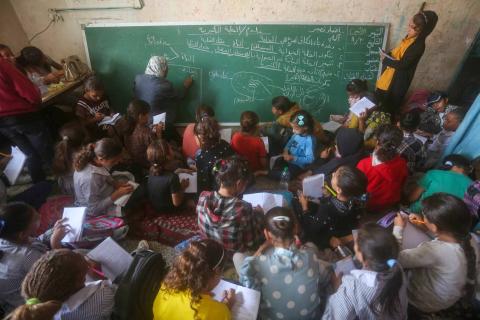
An international report led by the University of Cambridge (United Kingdom) warns that there is a serious risk of a ‘lost’ generation emerging in Gaza, due to the combination of educational, physical and psychological impacts after more than two years of the Israeli invasion. As of 1 October 2025, the UN Office for the Coordination of Humanitarian Affairs (OCHA) reported the deaths of 18,069 students and 780 education personnel in Gaza, with 26,391 students and 3,211 teachers injured. The study estimates that children in Gaza will have lost the equivalent of five years of education due to repeated school closures since 2020, first due to COVID-19 and then due to the Israeli invasion.
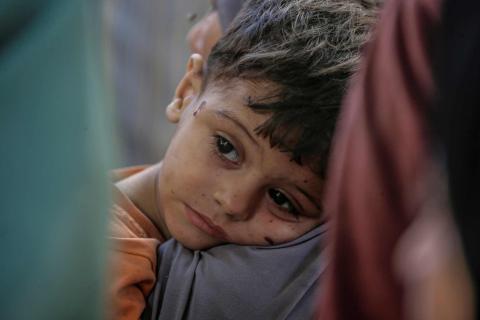
Through surveys of 78 healthcare workers in Gaza between August 2024 and February 2025, an international team has documented patterns of injuries among the civilian population during Israel's ongoing invasion. The most common traumatic injuries were burns, followed by injuries to the lower and upper limbs. Explosion damage accounted for most of the weapon-related trauma, which particularly affected the head, while gunshot wounds were mainly located in the lower limbs. The study is published in The BMJ.
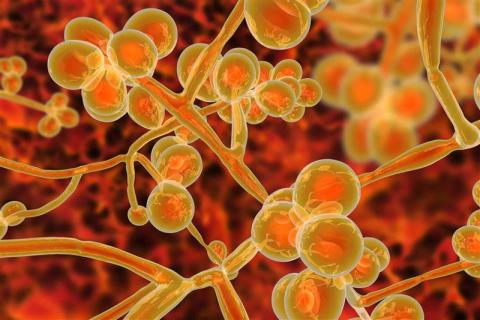
Infections caused by the fungus Candidozyma auris—formerly known as Candida auris—continue to rise, warns a report by the European Centre for Disease Prevention and Control (ECDC). Spain reported 1,807 of the 4,012 cases in 36 European countries between 2013 and 2023, the highest number ahead of Greece (852 cases) and Italy (712), according to the survey. This microorganism spreads particularly in hospitals, causing infections that are often resistant to existing drugs.

Today the Spanish Parliament rejected the creation of the State Public Health Agency, a proposal that had been envisaged since the Public Health Act of 2011 and whose idea of implementation had resurfaced after the pandemic.

The new US president, Donald Trump, announced on his first day that the country will leave the World Health Organisation (WHO) within the next twelve months. The reasons behind the decision, according to him, are the ‘mismanagement of the covid-19 pandemic and other global health crises’, as well as ‘disproportionate payments compared to other countries’ dues’.
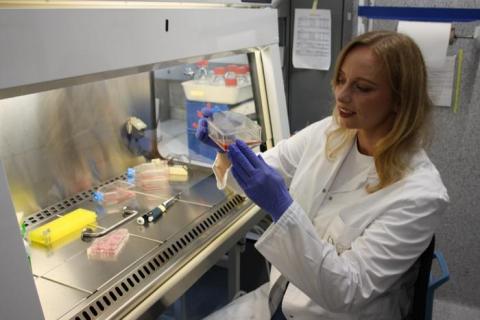
A team of researchers led by the Center for Genomic Regulation in Barcelona has mapped the human spliceosome for the first time. This complex and partially unknown cellular machinery is responsible for cutting and splicing the RNA fragments encoded by genes in different ways, making it possible to obtain a wide variety of proteins from the same sequence. Its alteration is related to processes such as cancer, neurodegenerative processes or various rare diseases. According to the researchers, who publish the results in the journal Science, “by knowing exactly what each part does, we can find completely new angles to address a broad spectrum of diseases”.

An international team of researchers publishes a review of the complex environmental impacts of genetically modified crops in the journal Science. According to the study, widespread adoption by some of the world's largest agricultural countries has had mixed results for biodiversity, deforestation and human health, depending on the specific characteristics of these crops and the regions involved.
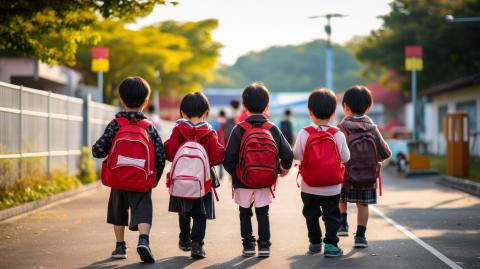
Since mid-October, northern China has reported an increase in influenza-like illness compared to the same period in the previous three years. On 21 November, the media and the ProMED system reported outbreaks of pneumonia of undiagnosed cause in children in northern China. According to the World Health Organization (WHO), it is unclear whether these are related to the overall increase in respiratory infections previously reported by the Chinese authorities or are separate episodes. In a statement, the WHO has officially requested detailed information from China on this increase in respiratory illnesses and outbreaks of childhood pneumonia.

The World Health Organisation (WHO) Emergency Committee met on 4 May to assess whether covid-19 could continue to be considered a health emergency of international concern (PHEIC). The organisation's director general, Tedros Adhanom, has followed its recommendation and ended the emergency declared on 30 January 2020. "It is with great hope that I declare that covid-19 has ended as a global health emergency. However, this does not mean that covid-19 is no longer a threat to global health. Last week, it claimed one life every three minutes, and that's just the deaths we know about," he told a press conference.

Research analysing data from more than 100,000 people in the UK followed for nearly a decade concludes that a higher intake of free sugars - added sugars or those naturally present in honey and fruit juice - is associated with an increased risk of cardiovascular disease. The study is published in BMC Medicine.